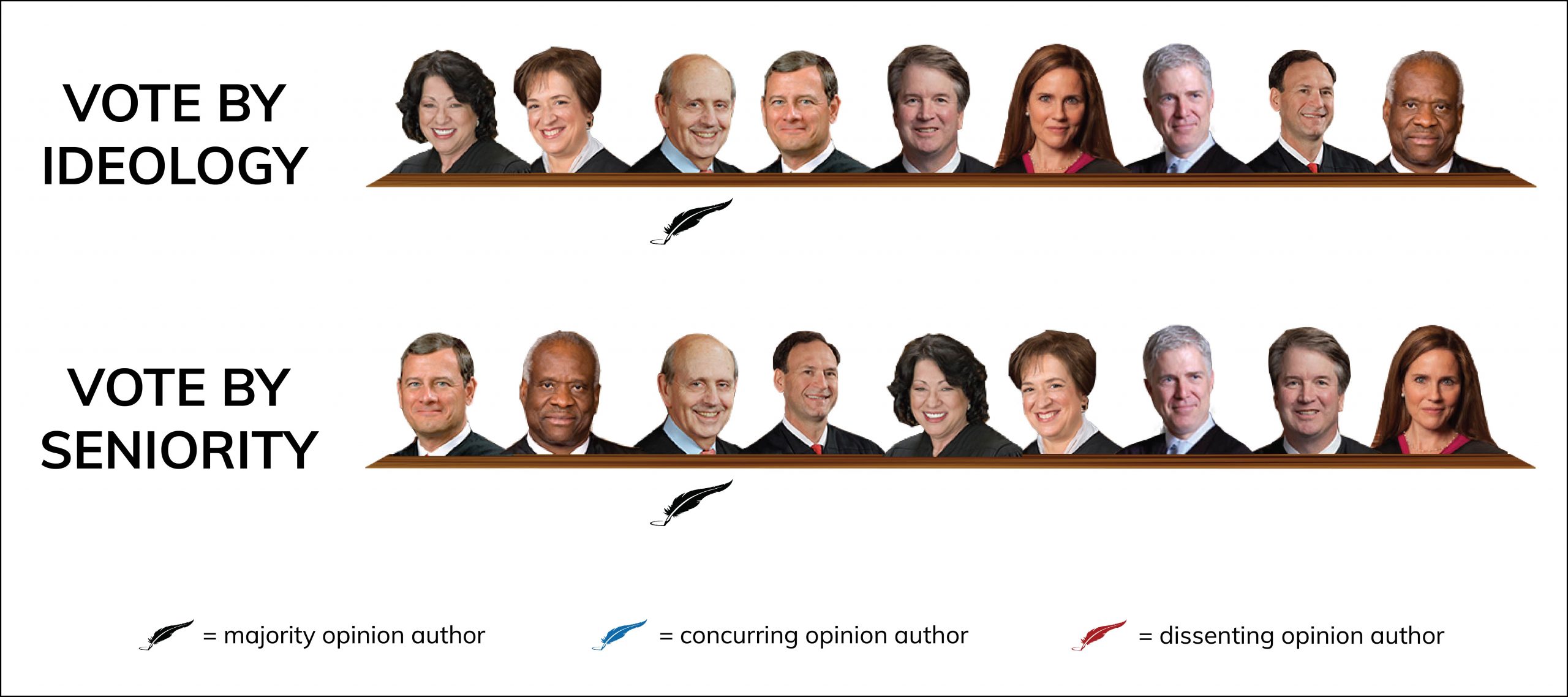Justices unanimously reject FTCs authority to compel monetary relief


My post summarizing the oral argument in AMG Capital Management v. Federal Trade Commission suggested that it didnt go well for the FTC because even Justice Stephen Breyer was unreceptive to the broad authority the commission was claiming in its efforts to recoup money from businesses accused of deceiving consumers. That understanding was born out Thursday when Breyers opinion for a unanimous court firmly and categorically rejected the commissions argument.
As Breyer explains, the case involved the tension between two enforcement avenues Congress has granted to the FTC, one administrative and one judicial. The administrative avenue starts with Section 5 of the Federal Trade Commission Act, which allows the commission to file a complaint against the claimed violator, adjudicate its claim, and in due course issue an order requiring the party to cease and desist from engaging in the unlawful conduct. In 1975, Congress added an enforcement option to that remedy, permitting the commission to go into a federal district court under Section 19 of the act and obtain such relief as the court finds necessary to redress injury to consumers, including among other things refund of money. The second, purely judicial avenue involves Section 13(b) of the FTC Act, adopted in 1973 (two years before Section 19). That section allows the commission to go directly to federal court without the trouble of conducting administrative proceedings or obtaining a cease-and-desist order and obtain an injunction against a business that is violating, or is about to violate, any provision of law enforced by [the commission].
As Breyer explains, in the late 1990s, the Commission began to use 13(b)s permanent injunction authority to seek monetary awards, such as restitution and disgorgement again without prior use of traditional administrative proceedings. Moreover, the Commission presently uses 13(b) to win equitable monetary relief directly in court with great frequency. Breyer summarizes statistics showing, for example, that in the most recent fiscal year the FTC obtained almost four times as many permanent injunctions under Section 13(b) as it issued cease-and-desist orders under Section 5.
Breyer offers several reasons to support the courts rejection of the commissions authority to use Section 13(b) to obtain court-ordered monetary relief. The simplest is that the language refers only to injunctions, which are not the same as an award of equitable monetary relief, as an injunction typically offers prospective relief against ongoing or future harm and restitution typically offers retrospective relief to redress past harm. Breyer also relies heavily on the language and structure of 13(b), taken as a whole, which indicate that the words permanent injunction have a limited purpose a purpose that does not extend to the grant of monetary relief. Offering a block quote from the statute of almost an entire page, he shows that the words are buried in a lengthy provision that focuses upon purely injunctive, not monetary, relief. For Breyer, the words reflect that the provision addresses a specific problem, stopping seemingly unfair practices from taking place while the Commission determines their lawfulness. He is unwilling to read those words as allowing what they do not say, namely, as allowing the Commission to dispense with administrative proceedings to obtain monetary relief.
Noting the explicit authority to award monetary relief in cases where the Commission has issued cease and desist orders, Breyer states that Congress likely did not intend for 13(b)s more cabined permanent injunction language to have similarly broad scope. Repeating a theme he raised at the oral argument, the opinion emphasizes the important limitations in Section 19 that dont exist in Section 13(b), including the limitation to cases in which the FTC initiated Section 5 proceedings within three years of the underlying violation and sought monetary relief within one year of the cease and desist order, and to cases in which a reasonable man would have known under the circumstances [that the conduct was] dishonest or fraudulent.
For the court, then, [i]t is highly unlikely that Congress would have enacted [in 1975] provisions expressly authorizing conditioned and limited monetary relief if the Act, via 13(b), had already implicitly allowed the Commission to obtain that same monetary relief and more without satisfying those conditions and limitations. Conversely, to read 13(b) to mean what it says produces a coherent enforcement scheme offering monetary relief conditioned on invocation of the commissions administrative procedures and then 19s redress provisions, as well as injunctive relief while administrative proceedings are foreseen or in progress, or when [the commission] seeks only injunctive relief.
Breyer gives short shrift to the commissions contrary arguments, emphasizing that earlier cases allowing equitable monetary relief under provisions authorizing injunctive relief relied on different statutes. He also emphasized the importance of the structure of the statutory scheme that is central to the decision in AMG Capital. The opinion closes by acknowledging the policy-related importance of allowing the Commission to use 13(b) to obtain monetary relief and the billions of dollars that the Commission has returned to consumers as a result of the Commissions 13(b) efforts, but notes that the FTC is free to us[e] its authority under 5 and 19 to obtain that relief. Pointedly, Breyer suggests that if that path is too cumbersome or otherwise inadequate, [the commission] is, of course, free to ask Congress to grant it further remedial authority, and points out that Congress considered such a request from the commission just last year.
Posted in Merits Cases
Cases: AMG Capital Management, LLC v. Federal Trade Commission
